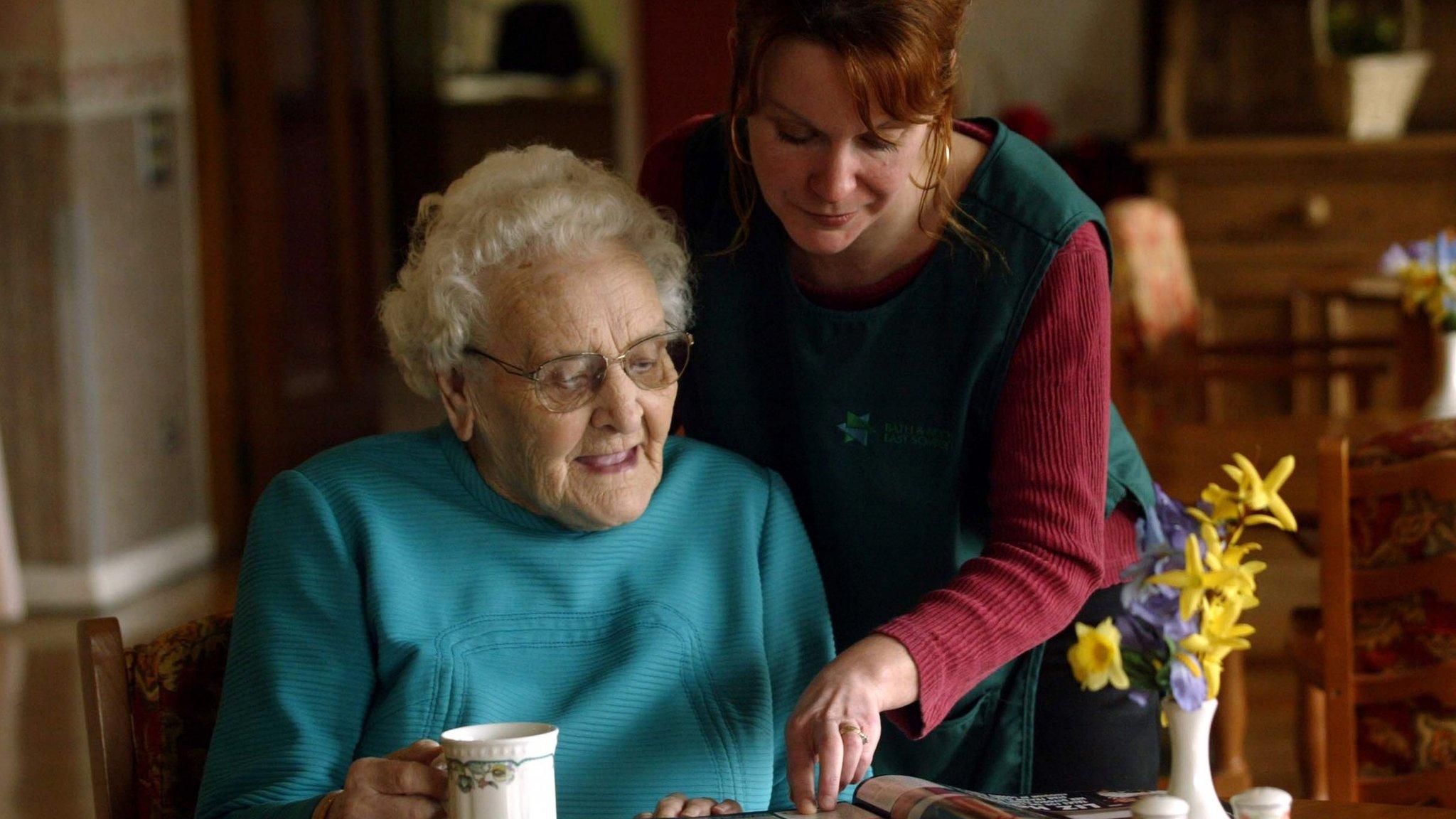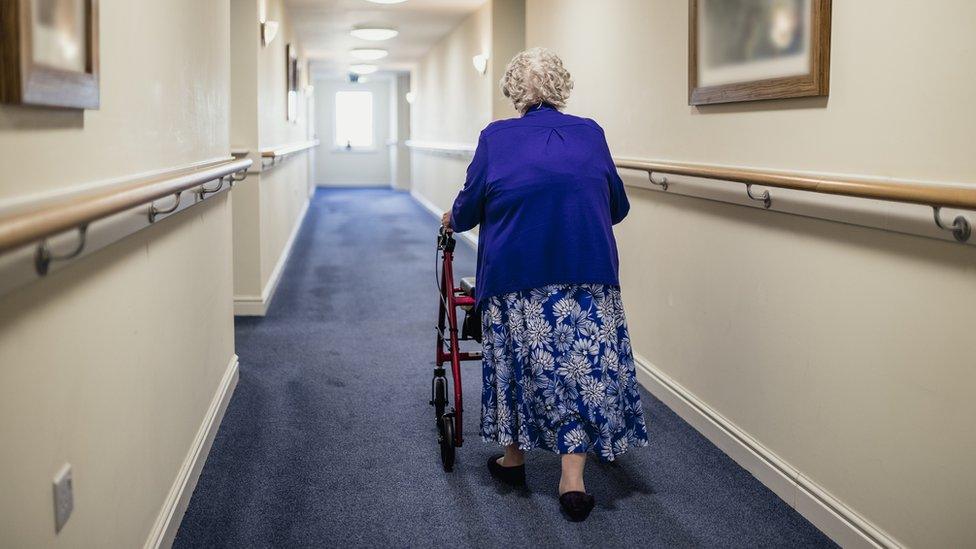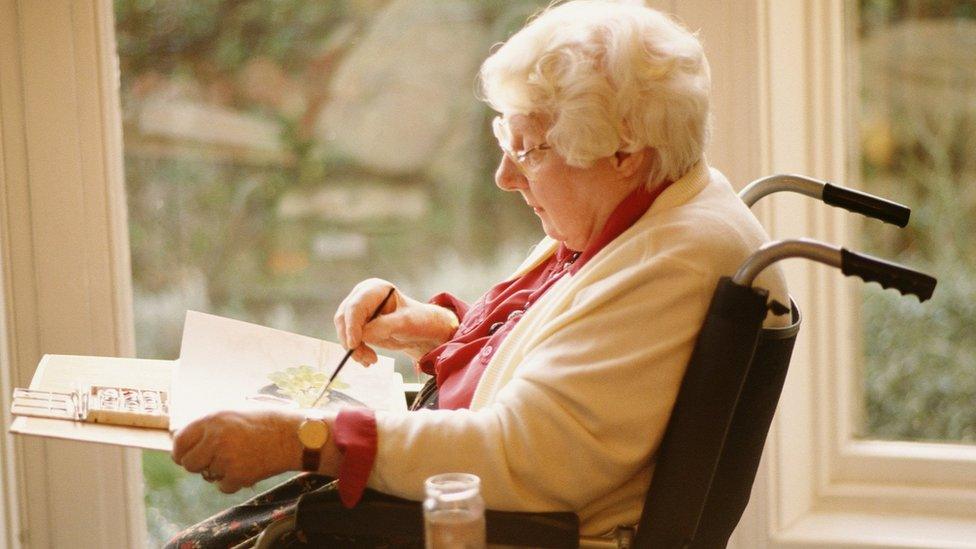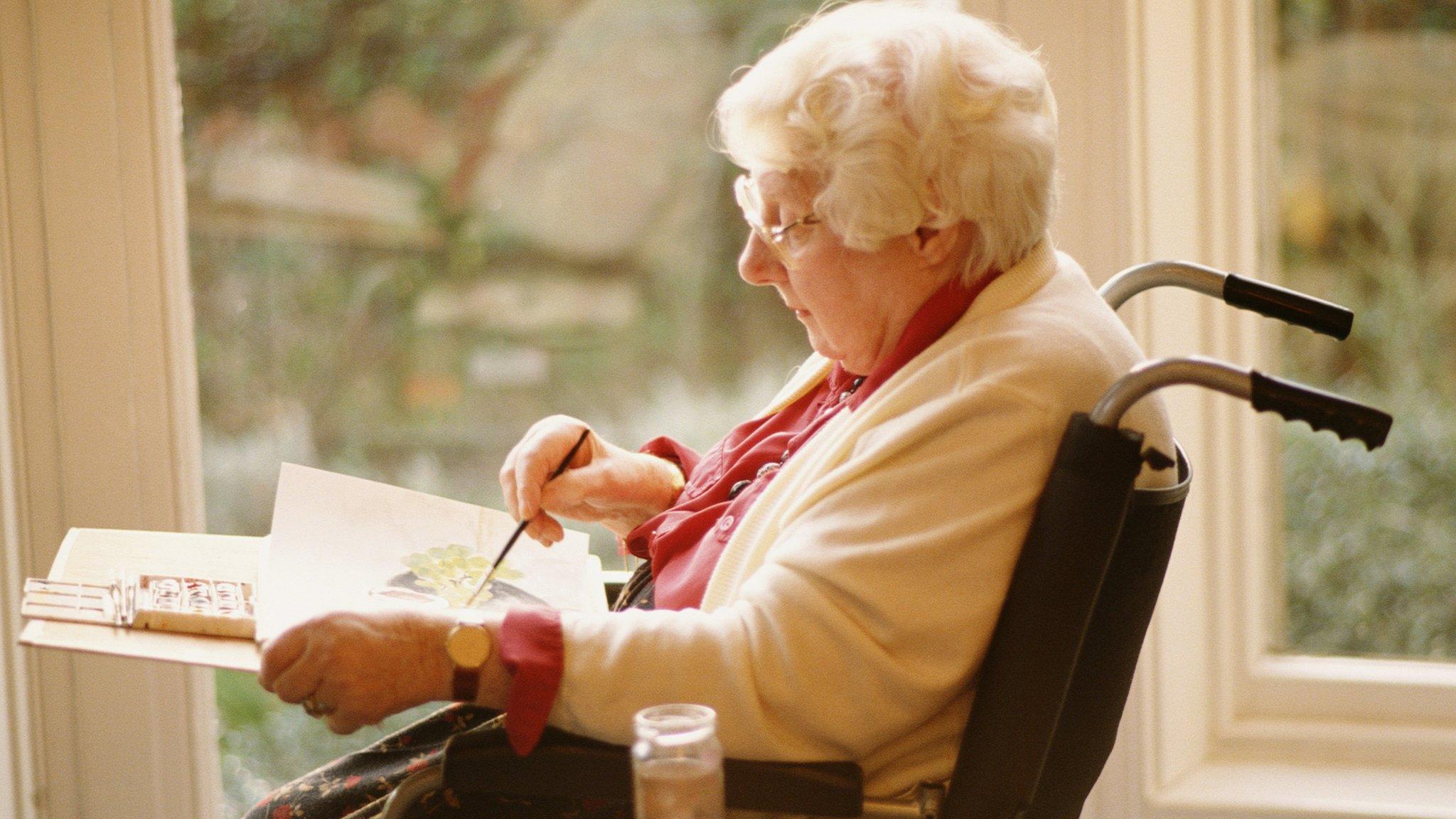Minister refuses to pause National Care Service plan
- Published

The Scottish government has been defending its plans for a new National Care Service.
The government says the system will be the biggest shakeup of public services since the creation of the NHS and will end a social care "postcode lottery".
But questions have been raised about the cost of setting it up and what it means for local decision-making.
Social Care Minister Kevin Stewart faced calls to pause the scheme at Holyrood's finance committee.
Mr Stewart said there was no reason to do so but acknowledged that there were currently "various unknowns" that could have an impact on the financial cost of setting up the new service.
He promised that further details of the finances would be forthcoming, and said there was overwhelming support for the changes from people who rely on social care.
And he told the committee that the process of "co-designing" the legislation with other organisations meant certain financial assumptions could not be made right now.
Scottish Conservative finance spokeswoman Liz Smith told Mr Stewart that MSPs did not currently have enough information to properly scrutinise the government's plans.
Ms Smith said the financial memorandum associated with the bill was the weakest she had ever seen in Parliament, and urged Mr Stewart to consider pausing the scheme until he was able to provide more detail.
The health and local government committees also spent Tuesday morning scrutinising the National Care Service Bill, which lays out the framework for the new system.

Why is this happening?
The seeds of the National Care Service were sown during the Covid-19 pandemic, when the virus took a terrible toll on many care homes.
First Minister Nicola Sturgeon said a new body could provide a "lasting and positive legacy", in the same way as the "tragedy" of World War Two led to the creation of the National Health Service.
Post-pandemic, the government commissioned an independent review of adult social care, led by Derek Feeley, a former chief executive of NHS Scotland.

His report, external considered options which stretched as far as nationalising the private care sector - something ultimately deemed too expensive and time-consuming - before coming down in favour of a new national management body.
MSPs at Holyrood are now scrutinising the National Care Service Bill, which sets up the framework on which the new service will be built.
What will the new system look like?
The idea is to recreate a free-at-the-point-of-need system like the NHS, but for care.
It would set up a series of regional care boards, which Scottish ministers would ultimately be responsible for.
Health Secretary Humza Yousaf said this would end a "postcode lottery" and create uniform standards for care across the country.
He said this meant everyone would have access to "consistently high-quality care and support so they can live a full life".
Mr Feeley also said it could "drive national improvements" and help unite agencies and staff behind "a common purpose".
The new system would be a huge undertaking, drawing together social work, children's services and justice staff as well as those from care homes and care at home services.
Ministers say the new service will aim to support people in their own homes, or among family, friends or their community wherever possible.
It will also create a charter of rights and responsibilities for social care, with a robust complaints and redress process.


Pretty much everyone I talk to in healthcare, be it GPs, A&E consultants, social workers, or charities, support the idea of a National Care Service - but there are big concerns about how it is being shaped through this new bill.
Some question a lack of detail saying it doesn't address how services are to be funded or staffed. Others have raised concerns that it takes accountability away from local communities.
But the bottom line is that health and social care needs people to provide care and deliver services. That is something that we are extremely short of right now.
We've heard a lot lately about record delays getting people out of hospital and how that leads to long waits in A&E.
To solve that problem requires finding more social care support. It is a hot topic right now - but better integration between hospitals and community health and social care has long been seen as in need of improvement.
People are living longer with more complex conditions. That means a growing demand for carers, occupational therapists or district nurses.
It can also take time to make a home accessible or fit additional equipment to help with everyday tasks. There can be differences in provision depending on where you live and that is something the National Care Service is supposed to end.

Why is it controversial?
Councils would essentially no longer be involved in the delivery of social care - and complain that this could undermine local accountability.
They don't like the idea of a "power grab" by central government, and are wary of the potential impact of tens of thousands of staff moving across from them to the new care service.
Local authority umbrella body Cosla said it could pose "a serious risk to councils' ability to deliver a wide range of services for communities", external.

The Unite union called the proposals an "all-out assault on local democracy", while GMB Scotland said workers "haven't even been an afterthought" in the drafting of legislation.
Meanwhile, the Scottish Conservatives said setting up a new service would "see precious resources diverted away from the front line and into employing hundreds more management and admin staff".
Beyond these practical concerns, some charities have also raised questions about the care on offer.
The Neurological Alliance of Scotland has described the service as "a vision without a blueprint", external, adding that "we can't tell if it will even stand up, much less that it will meet the care needs of people in Scotland".
How much is it going to cost?
This is one of the biggest questions - and controversies - over the plans, at least in terms of the debate at Holyrood.
The Scottish government initially reckoned it would cost £500m to set up the new system, by the end of the current Holyrood term in 2026.
However, Scottish Parliament researchers have estimated the bill over five years to be somewhere between £664m and £1.2bn.

MSPs are scrutinising the legislation which will underpin the new system
And Audit Scotland has warned that "the potential for additional cost is significant", highlighting issues with pensions, VAT changes, capital investment and health board transition costs.
SNP backbenchers have joined in with criticism, with finance committee convener Kenny Gibson saying the reorganisation was "like a sledgehammer to crack a nut" if it did not provide extra funding to address issues in the healthcare sector.
His SNP colleague Michelle Thomson said she had "no confidence whatsoever" that the financial memorandum accompanying the legislation represented any level of accuracy or value for money.
When will it be ready?
The passage of the National Care Service Bill is really only the beginning at Holyrood.
It is a "framework" bill, meaning it sets out the broad overall plan for the service, before ministers add much more detail in the coming years.
So while the government hopes to pass the bill in the coming year, it will be some time before the final vision is realised.
Consultations are still ongoing about what exactly some of the new structures will look like, with ministers saying they want to "co-design" the system with people who have experience of care.
The plan is to have this substantially completed within the current term of parliament - so by 2026 - but the system is expected to continue to bed in and evolve for years to come.
- Published1 November 2022

- Published21 June 2022
